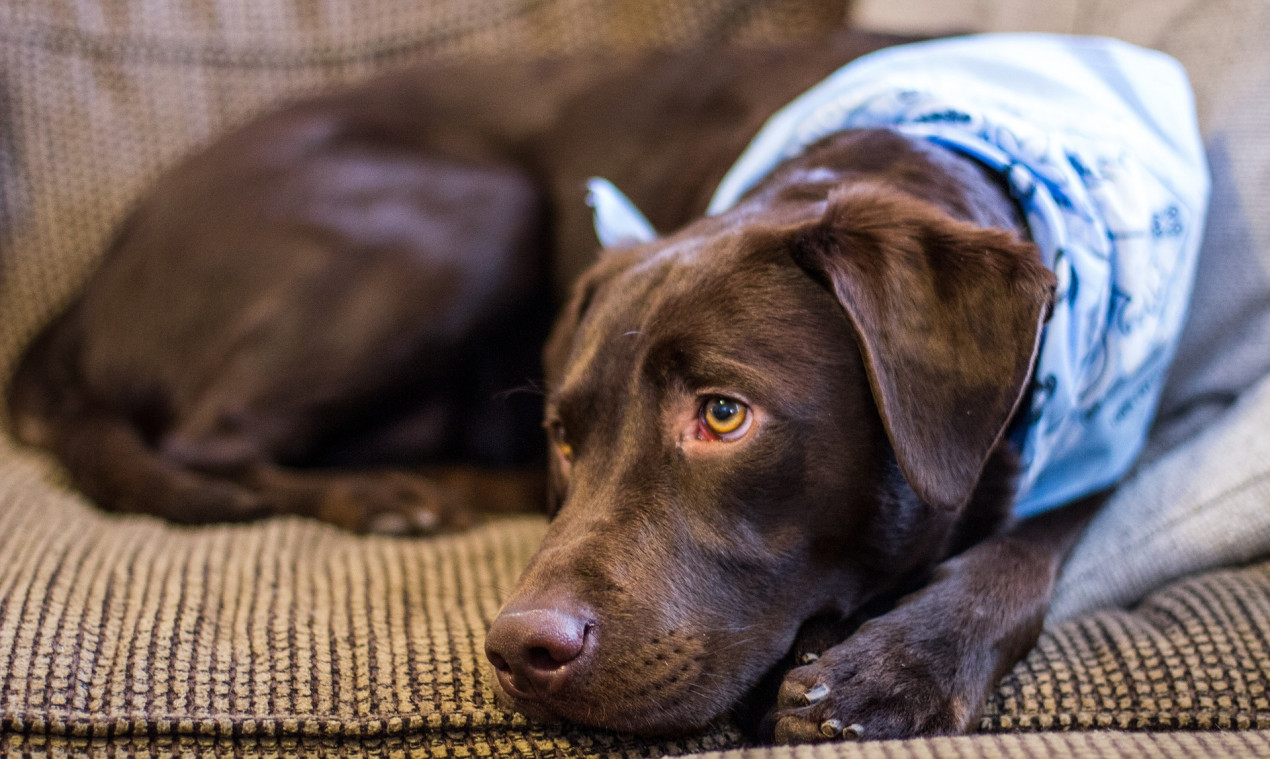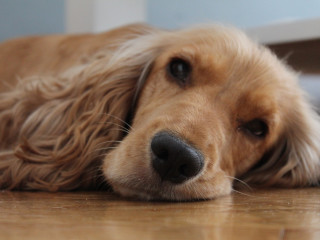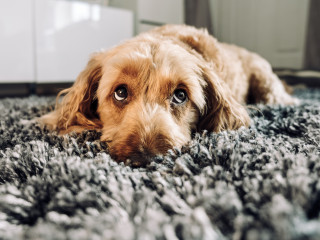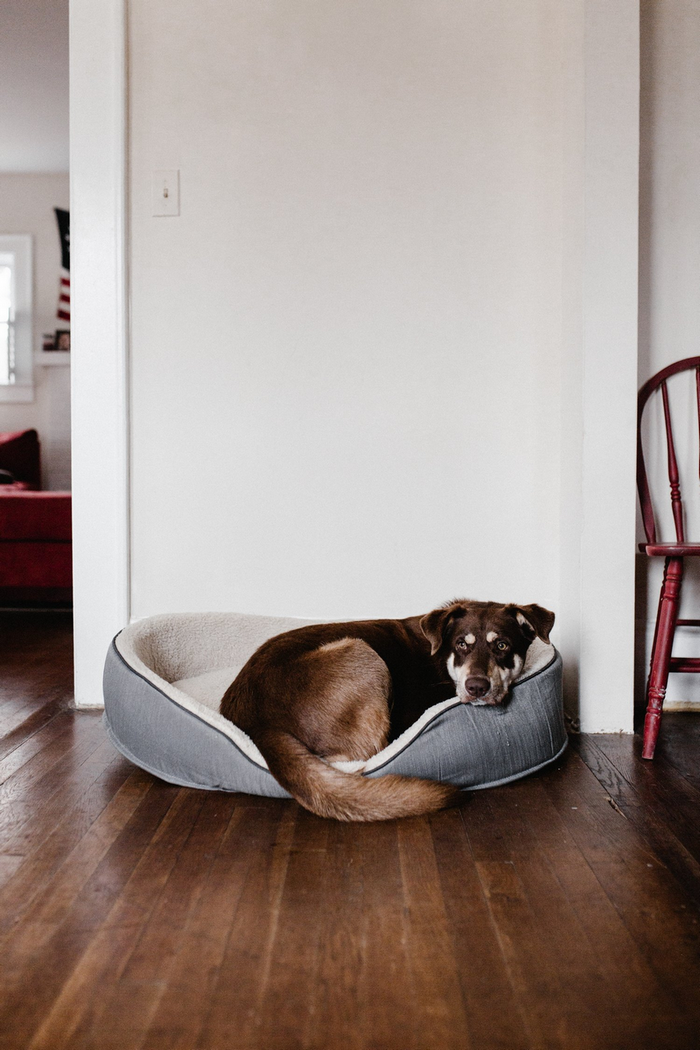We're here to help

What is diarrhoea in dogs?
- Diarrhoea are stools that are soft to liquid in consistency.
- Dog diarrhoea , sometimes referred to as diarrhea, is a common problem, largely because dogs will put almost anything in their mouths.
- Most cases of diarrhoea in dogs are not serious and dogs will get better by themselves.
- But if your dog has diarrhoea and other symptoms, such as frequent vomiting, lack of appetite, lethargy or bloody diarrhoea, contact your vet or find your nearest emergency vet.
Why does my dog have diarrhoea?
The most likely cause of diarrhoea in dogs is scavenging – eating things such as table leftovers – or sudden changes in diet. Other chronic causes of dog diarrhoea can include food allergies and intolerances.
Most cases of diarrhoea in dogs are not serious and will resolve themselves. However, it’s worth bearing in mind that diarrhoea in dogs may be the result of a more serious condition such as an infection, parasites, swallowing a foreign body or a poisonous substance. Infections with common viruses such as parvovirus, and coronavirus may also trigger diarrhoea.
How to care for a dog with diarrhoea?
If the diarrhoea is accompanied by other signs such as severe vomiting, loss of appetite or lethargy please consult your vet or, out of hours, your nearest Vets Now pet emergency service.
If your dog has diarrhoea but is not vomiting:
- Don’t withhold food
- Make sure your dog has plenty of water to drink, to avoid dehydration.
- Offer easily digestible, low-fat, high-fibre food. Commercial diets are available but a bland diet of chicken or white fish with brown rice, wholemeal pasta or potatoes is suitable. You can also give porridge oats (cooked in water), tapioca or polenta. Avoid rich foods, dairy and fats. Split the daily requirements into 4-6 small meals.
- Once the stools start to harden, gradually reintroduce your dog’s normal diet over 2-3 days mixing with the bland diet, increasing the proportion of normal food with each successive meal.

Does the colour of my dog's diarrhoea matter?
The consistency and colour of your dog’s stools are important. Dog poo should be chocolate brown in colour and shaped like a log. If your dog’s stools are black and tarry this may be the result of internal bleeding. Watch out also for blood or red streaks, green stools (may signify gall bladder issues), orange stools (could be liver problems) or grey and greasy stools (potential pancreas issues).
Colitis in dogs
Around one-third of dogs with a history of chronic diarrhoea have colitis, which is inflammation of the large intestine or colon. Stools are stored in the colon before it is expelled. The colon also helps dogs maintain a good balance of fluids and electrolytes (sodium, potassium, calcium, magnesium, etc). When the colon is inflamed it can result in an imbalance of fluids and electrolytes. This often causes dogs to suffer powerful colon contractions which results in the classic symptom of frequent small amounts of diarrhoea, often with mucus or blood. Dogs with colitis often endure pain when doing the toilet.
Causes of colitis in dogs
In most cases, the causes of colitis are unknown. But infections, trauma, stress, bowel disease or genetic predisposition have been cited as causes. Diagnosis of colitis usually follows a rectal examination, blood tests and microscopic evaluation of the dog’s stools. Treatment for colitis in dogs will typically involve identifying and eliminating the cause. Vets may also advise owners to supplement their dog’s diet with fibre.

Puppy diarrhoea
If your puppy has diarrhoea, it’s important to keep a close eye on them, especially if they’re very young. Puppy diarrhoea may be a sign of a serious condition such as parvovirus, intestinal parasites or exposure to dangerous bacteria. If your puppy has diarrhoea it’s worth contacting your vet for advice. This is especially the case if it smells foul, contains blood, is black and tar-like or if it’s accompanied by pain, fever, sickness and loss of appetite.
How to prevent dog diarrhoea
There are several ways to reduce the incidence of diarrhoea in dogs. These include:
- Avoid sudden changes in your dog’s diet
- Always keep your dog up-to-date with worming and vaccinations
- Do not give your dog bones (these can cause constipation or diarrhoea)
- Do not give your dog small objects to play with
- Do not feed your dog table scraps
- Try to prevent your dog scavenging when out and about
- Ensure all food given is treated or processed to reduce harmful bacteria


